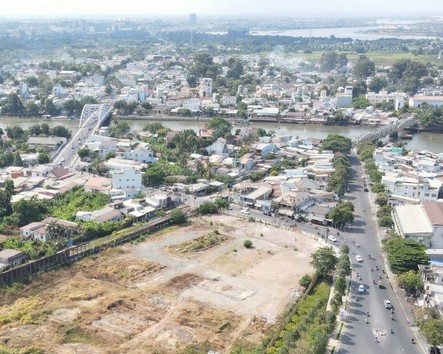 Opinion
Opinion


|
| Head of the General Statistics Office (GSO) Nguyễn Thị Hương. VNA/VNS Photo |
Head of the General Statistics Office (GSO) Nguyễn Thị Hương talks to Vietnam News Agency about challenges facing the Vietnamese economy.
2021 is the first year of the 2021-25 socio-economic development period. Could you talk about the overall picture and bright spots of the country’s socio-economic situation in the first quarter?
The year 2021 is defined as the year of economic recovery for Việt Nam with an expected growth target of 6.5 per cent as set by the Government Resolution on key tasks and solutions to implement the 2021 socio-economic development and State budget estimate plan.
Following the recovery and positive growth from the fourth quarter of 2020, the country’s macro-economy continues to stabilise and the country enjoys favourable weather conditions in the early months of the year while the African swine fever was kept under control, helping to facilitate business and production activities.
However, the resurgence of the pandemic in late January has posed challenges for the management and direction of economic development and for ensuring social welfare.
From the beginning of this year, the Government and the Prime Minister instructed ministries, sectors and localities to carry out measures synchronously, flexibly and effectively to achieve the dual targets of fighting the pandemic and stepping up economic recovery and development. As a result, the GDP posted a growth rate of 4.48 per cent in the first quarter of 2021, higher than the 3.68 per cent of the same period last year.
The socio-economic picture in the first quarter of 2021 has many bright spots. In the agricultural sector, rice production output increased; forestry production developed with wood product export markets expanding; and the industrial sector recorded a growth rate of 6.5 per cent.
The first quarter saw a strong recovery of imports and exports. The country enjoyed a trade surplus of US$2.03 billion during the period. There were 11 products recording an export turnover of over $1 billion.
The number of new businesses in the first quarter fell by 1.4 per cent year-on-year, but their total registered capital rose by 27.5 per cent. The disbursement of foreign investment increased by an estimated 6.5 per cent year-on-year, and the average Consumer Price Index (CPI) rose by 0.29 per cent – the lowest for the first quarter in the last 20 years.
Most big economies have loosened fiscal and monetary policies to promote growth, creating inflationary pressure. Việt Nam has integrated into the global economy and in that context, will the country be able to keep inflation under control in 2021 as targeted by the National Assembly? What does the Government need to do to control inflation?
The CPI of the first quarter increased 0.29 per cent and was the lowest increase since 2002. Together with the Government’s experience in price management and inflation control over the past year, we believe that the target to keep inflation at around 4 per cent this year of Government is feasible.
In order to control inflation, we recommend authorised agencies to keep a close watch on price developments of commodities inside and outside the country. The adjustment of prices of commodities managed by the State should be made at the right time and at an appropriate level.
A recent report on the impact of the pandemic on Vietnamese firms by the World Bank and the Việt Nam Chamber for Commerce and Industry which surveyed 10,197 enterprises nationwide, found the pandemic had a very negative impact on businesses in Việt Nam, with 87.2 per cent of surveyed firms affected at a high level, with just 11 per cent of enterprises "not affected by anything" and nearly 2 per cent reporting a "mostly positive" impact. In your opinion, do we need a support package for the business sector in the future?
With the current development of the COVID-19 pandemic and challenges facing businesses, we suggest focusing on groups of basic solutions.
The business community is advised to take the initiative in seeking new opportunities, ideas, orientations and business partners.
The State should continue issuing policies and effective support packages for businesses and consider reducing corporate income tax for all enterprises until the end of this year.
The State should also continue implementing credit support packages for businesses affected by COVID-19 to help them get access to loans from credit institutions.
With the results of the first quarter of this year, in your opinion, what should be done in the future to reach and surpass the economic growth target for the whole year?
To achieve a 6.5 per cent growth rate, it is important to control the pandemic, stabilise economic development and maintain the agricultural sector’s growth pace.
Việt Nam should bring into full play opportunities brought about by free trade agreements to speed up import-export activities and improve the competitiveness and values of exported products.
Ministries and sectors should speed up public investment disbursement and pay more attention to developing e-commerce. VNS



